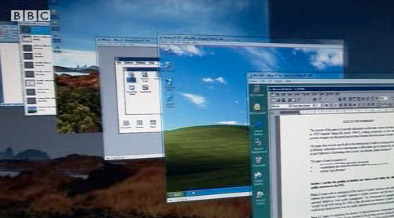| Warning of Data Ticking Time Bomb |
 |
| Written by BBC News |
|
The growing problem of accessing old digital file formats is a "ticking time bomb", the chief executive of the UK National Archives has warned.
Natalie Ceeney said society faced the possibility of "losing years of critical knowledge" because modern PCs could not always open old file formats.
She was speaking at the launch of a partnership with Microsoft to ensure the Archives could read old formats.
Microsoft's UK head Gordon Frazer warned of a looming "digital dark age".
Costly deal
He added: "Unless more work is done to ensure legacy file formats can be read and edited in the future, we face a digital dark hole."
Research by the British Library suggests Europe loses 3bn euros each year in business value because of issues around digital preservation.
The National Archives, which holds 900 years of written material, has more than 580 terabytes of data - the equivalent of 580,000 encyclopaedias - in older file formats that are no longer commercially available.
Ms Ceeney said: "If you put paper on shelves, it's pretty certain it is going to be there in a hundred years.
"If you stored something on a floppy disc just three or four years ago, you'd have a hard time finding a modern computer capable of opening it."
"Digital information is in fact inherently far more ephemeral than paper," warned Ms Ceeney.
She added: "The pace of software and hardware developments means we are living in the world of a ticking time bomb when it comes to digital preservation.
Historically within the IT industry the prevailing trend was for proprietary file formats. Gordon Frazer, Microsoft
"We cannot afford to let digital assets being created today disappear. We need to make information created in the digital age to be as resilient as paper."
But Ms Ceeney said some digital documents held by the National Archives had already been lost forever because the programs which could read them no longer existed.
"We are starting to find an awful lot of cases of what has been lost. What we have got to make sure is that it doesn't get any worse."
The root cause of the problem is the range of proprietorial file formats which proliferated during the early digital revolution.
Technology companies, such as Microsoft, used file formats which were not only incompatible with pieces of software from rival firms, but also between different iterations of the same program.
Mr Frazer said Microsoft had shifted its position on file formats.
"Historically within the IT industry, the prevailing trend was for proprietary file formats. We have worked very hard to embrace open standards, specifically in the area of file formats."
Microsoft has developed a new document file format, called Open XML, which is used to save files from programs such Word, Excel and Powerpoint.
Mr Frazer said: "It's an open international standard under independent control. These are no longer under control of Microsoft and are free for access by all."
But some critics question Microsoft's approach and ask why the firm has created its own new standard, rather than adopting a rival system, called the Open Document Format.
Instead, Microsoft has released a tool which can translate between the two formats.
Ben Laurie, director of the Open Rights Group, said: "This is a well-known, standard Microsoft move.
"Microsoft likes lock-ins. Typically what happens is that you end up with two or three standards."
The agreement between the National Archives and Microsoft centres on the use of virtualisation.
The archive will be able to read older file formats in the format they were originally saved by running emulated versions of the older Windows operating systems on modern PCs.
For example, if a Word document was saved using Office 97 under Windows 95, then the National Archives will be able to open that document by emulating the older operating system and software on a modern machine.
Ms Ceeney said the issue of older file formats was a bigger problem than reading outdated forms of media, such as floppy discs of various sizes and punch cards.
"The media it is stored in is not relevant. Back-up is important, but back-up is not preservation."
Adam Farquhar, head of e-architecture at the British Library, praised Microsoft for its adoption of more open standards.
He said: "Microsoft has taken tremendous strides forward in addressing this problem. There has been a sea change in attitude."
He warned that the issue of digital preservation did not just affect National Archives and libraries.
"It's everybody - from small businesses to university research groups and authors and scientists.
"It's a huge challenge for anyone who keeps digital information for more than 15 years because you are talking about five different technology generations."
The British Library and National Archives are members of the Planets project which brings together European National Libraries and Archives and technology companies to address the issue of digital preservation.
He said that open file formats were an important step but there was still work to be done.
"Automation is a key area to work on. We need to be able to convert hundreds and even thousands of documents at a time," he said.
© BBC News
http://zonezero.com/magazine/articles/timebomb/index.html
|





